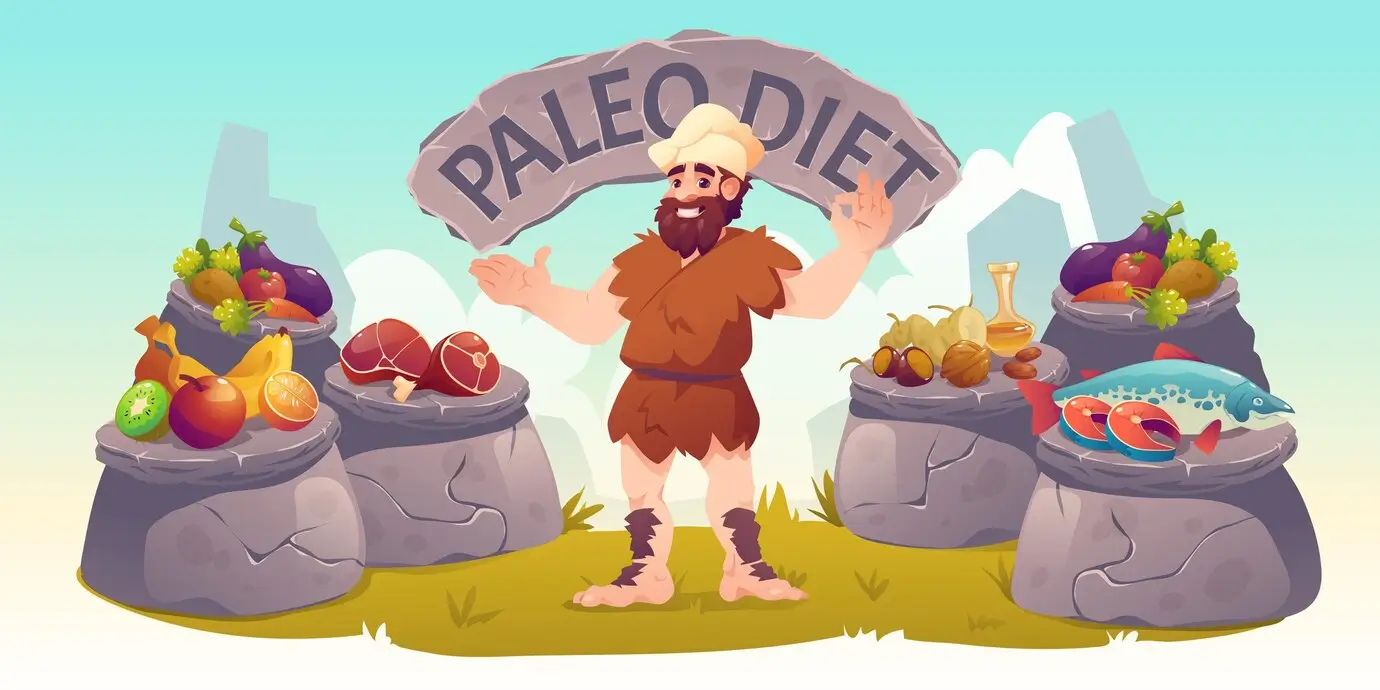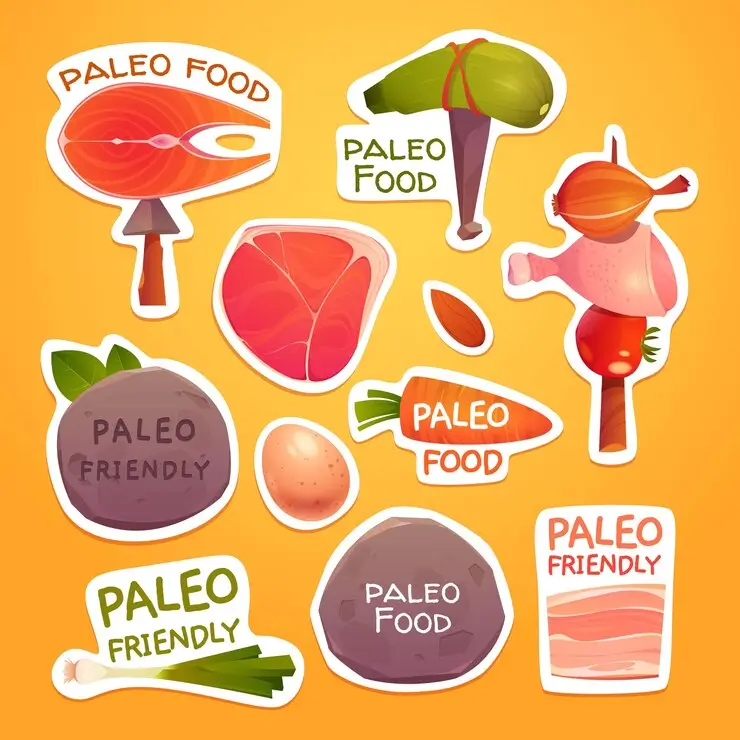A Complete Guide to the Paleo Diet for Optimal Health and Well-being
The paleo diet, short for the Paleolithic diet, has gained significant popularity in recent years as a holistic approach to nutrition. Drawing inspiration from the dietary habits of our ancient ancestors, this diet emphasizes whole, unprocessed foods while excluding grains, dairy, and processed sugars.
Table of Contents
Origins of the Paleolithic diet
Historical Context and Roots
The roots of the paleo diet can be traced back to the Paleolithic era, where humans were hunter-gatherers relying on naturally available food sources. The diet aims to replicate the nutritional patterns of our ancestors.
Evolutionary Principles Behind the Diet
Understanding the evolutionary aspects of the Paleolithic diet, such as the introduction of agriculture, helps in comprehending its underlying principles and rationale.
Key Principles
Emphasis on Whole, Unprocessed Foods
Central to the Paleolithic diet is the focus on whole foods, such as lean meats, fish, fruits, vegetables, nuts, and seeds. These nutrient-dense options form the foundation of a paleo lifestyle.
Avoidance of Grains, Dairy, and Processed Sugars
The exclusion of grains, dairy, and processed sugars is based on the belief that these modern additions to the human diet contribute to various health issues. The paleo diet encourages a return to simpler, more natural food choices.
Benefits of Following the Paleolithic diet
Weight Management and Fat Loss
Many individuals turn to the paleo diet for its potential in aiding weight loss and fat management. The emphasis on whole foods and the avoidance of processed options can contribute to a healthier body composition.
Improved Energy Levels
The elimination of processed sugars and refined carbohydrates may result in more stable energy levels throughout the day, reducing energy crashes often associated with high-sugar diets.
Enhanced Nutrient Intake
By focusing on nutrient-dense foods, followers of the Paleolithic diet aim to maximize their intake of essential vitamins and minerals, promoting overall health and well-being.
Critics and Controversies
Debunking Common Misconceptions
Addressing misconceptions surrounding the paleo diet, such as it being excessively meat-centric or lacking in certain nutrients, helps dispel doubts among potential adherents.
Addressing Concerns Raised by Critics
Critics often raise concerns about the sustainability and nutritional completeness of the Paleolithic diet. Examining these concerns in light of scientific evidence helps provide a more balanced perspective.
Getting Started with the Paleo Diet
Creating a Meal Plan
Developing a practical and sustainable meal plan is crucial for those considering the paleo diet. This involves identifying acceptable food options and planning meals that align with individual preferences.
Shopping Tips for Paleo-Friendly Ingredients
Navigating the grocery store with a paleo mindset involves making informed choices. Tips on selecting fresh produce, lean meats, and other paleo-friendly ingredients are essential for success.
Paleo-Friendly Recipes
Breakfast Ideas
Sample paleo-friendly breakfast recipes that are both delicious and aligned with the diet’s principles.
Lunch and Dinner Recipes
Explore diverse lunch and dinner options, incorporating a variety of proteins, vegetables, and healthy fats.
Snack Options
Satisfying snack ideas that adhere to paleo guidelines, promoting sustained energy between meals.
Navigating Challenges on the Paleo Diet
Social Situations and Dining Out
Tips on navigating social situations and restaurant dining while adhering to the paleo diet, ensuring a seamless integration into various lifestyles.
Dealing with Cravings
Understanding and managing cravings is an integral aspect of long-term success with the paleo diet. Practical strategies for overcoming cravings are explored.
Scientific Evidence Supporting the Paleo Diet
Research Findings and Studies
Highlighting key scientific studies that support the efficacy of the paleo diet in various health aspects.
Expert Opinions on the Diet’s Efficacy
Insights from nutrition and health experts on the benefits and potential drawbacks of the paleo diet.
Common Mistakes to Avoid
Overemphasis on Meat Consumption
Cautioning against the misconception of an overly meat-centric paleo diet and the importance of a balanced approach.
Ignoring Individual Nutritional Needs
Emphasizing the need for personalized adjustments within the paleo framework to accommodate individual nutritional requirements.
Not Staying Hydrated
The significance of proper hydration and its role in overall health, often overlooked by some on the paleo diet.
Personal Success Stories
Real-Life Testimonials
Sharing inspiring personal stories of individuals who have experienced transformative health improvements through the paleo lifestyle.
Transformations and Health Improvements
Highlighting specific instances of weight loss, increased energy, and other positive changes attributed to the paleo diet.
Incorporating Exercise with the Paleo Lifestyle
Complementary Fitness Routines
Exploring exercise routines that complement the paleo lifestyle, promoting overall well-being.
Synergy Between Diet and Exercise for Optimal Results
Understanding the symbiotic relationship between diet and exercise for achieving optimal health and fitness goals.
Sustainability of the Paleo Diet
Long-Term Adherence and Lifestyle Integration
Guidance on maintaining the paleo lifestyle in the long term, emphasizing adaptability to individual preferences and evolving nutritional needs.
Adjusting the Diet to Personal Preferences and Needs
Encouraging individuals to customize the paleo diet to suit their unique tastes, making it a sustainable and enjoyable way of life.
Paleo Diet and Specific Health Conditions
Impact on Diabetes, Heart Health, and Autoimmune Diseases
Exploring scientific evidence and anecdotal accounts regarding the impact of the paleo diet on specific health conditions.
Consultation with Healthcare Professionals
The importance of consulting healthcare professionals for personalized advice, especially for those with pre-existing health conditions.
Conclusion
In conclusion, the paleo diet offers a compelling approach to nutrition, rooted in evolutionary principles and focused on whole, unprocessed foods. Whether seeking weight management, increased energy, or overall well-being, individuals can benefit from exploring and personalizing the paleo lifestyle.
Frequently Asked Questions (FAQs)
- Is the Paleolithic diet suitable for everyone?
- The Paleolithic diet may not be suitable for everyone, and it’s essential to consider individual health conditions and dietary preferences. Consultation with a healthcare professional is advised.
- Can I follow the Paleolithic diet if I’m a vegetarian or vegan?
- While the Paleolithic diet traditionally includes animal products, individuals can adapt it by incorporating plant-based sources of protein and fats. Personalization is key.
- Are there any known side effects of the Paleolithic diet?
- Side effects can vary among individuals, and some may experience initial adjustments. It’s crucial to monitor how the body responds and make necessary adjustments.
- How can I maintain social connections while on the Paleolithic diet?
- Navigating social situations may require planning and communication. Sharing your dietary preferences with others can facilitate a smoother experience.
- Is the Paleolithic diet supported by scientific evidence?
- There is scientific research supporting various aspects of the Paleolithic diet, but individual responses may vary. It’s advisable to stay informed and consult with experts.

